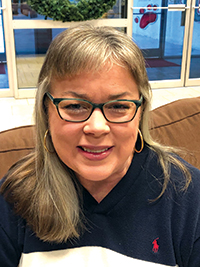Nursing home roles will continue expanding in the community
by January 16, 2019 5:19 am 908 views

Marlisa Thompson, the administrator at Greene Acres Nursing Home in Paragould, knew she was destined for a life in long-term care immediately.
A former aerobics instructor and director of activity therapy at a psychiatric and substance abuse hospital in Jonesboro, Thompson was recruited to work at Paragould Nursing Center by Bill Stubblefield in 1992. Thompson brought a newly-designed activity workout regiment for residents.
She told her husband at the end of the first week on the job, “I’ll do this for the rest of my life. As long as I’m working, I will work in nursing homes.”
Thompson rose through the ranks to her administrator position and now oversees Green Acres, a 143-bed community-owned facility that’s been in Paragould since 1956. The 501(c)3 not-for-profit provides short-term and long-term care for seniors as well as short-term and long-term outpatient therapy. Green Acres is Medicare and Medicaid certified.
“You can be having the worst day of your life and you go out there and get a hug from one of the people you connect with and everything’s all right. It just makes your day,” Thompson said of the intangible benefits of her job.
Right before Christmas, Talk Business & Politics CEO Roby Brock and Thompson discussed long-term care and the changes taking place in the industry.
Roby Brock: How have you seen long-term healthcare and senior care change in the last 10 years?

Brock: What do you see in terms of challenges that you deal with in your daily operations?
Thompson: With more and more community services available, that spreads the staffing out further and further, so it is harder to find adequate staffing. And it’s very hard to find young people who are willing to work hard and provide totally unselfish and loving care that are not focused on having their cellphone in their pocket. That are more focused on the care and the needs of the person that they’re taking care of. Where they look at the person as if [they] were a family member and they want to provide professional care without being focused on, “Oh, it’s time to go home.” It’s hard to find people that have that work ethic these days.
Brock: How do you think customers in your region of the state may be different than in other places?
Thompson: I’m very impressed with the way Northeast Arkansas trends are moving. The area’s becoming more and more innovative. It’s evidenced by dealing with a more educated community. When family members come in, they already know a lot of their options available. They’ve either Googled or they’ve had wonderful care planners at the hospital who have informed them. The physicians are better at educating the family members and the residents so that they know more of what options are available when they walk in the door.
Brock: What is driving the changes that you think you’ll be coping with in the near future?
Thompson: People are definitely living longer. But our lifestyles are causing us to live sicker. We see so many more younger patients due to poor choices that they’ve made through their lives. We physically don’t work as hard as our parents did. You know we work hard, but we don’t do the physical labor that our parents did. We eat more processed foods, and we eat food products that aren’t even really actually food. We eat less real things grown from the garden and, you know, we’ve gotten into “throw it in a box” or “run through a drive-thru.”
And so because of that, we have health-related illnesses like diabetes, heart and cardiovascular diseases, strokes, drugs, addictions, obesity. I could go on and on. So we’re living longer lives, but we’re living under more medical care during that time.
Brock: You have a reputation as being one of the best in the business. What’s your management philosophy for operating a nursing home? What has made you and Green Acres so successful?
Thompson: First of all, thank you for the compliment, but I don’t take the credit. I give that to my staff and to our board of directors that work so hard for our facility. This facility is a teamwork effort. It’s not me. My primary philosophy and what I pass on to my staff is: Is it in the best interest of the resident? I tell them all the time, if they have a question about whether they should do something or they shouldn’t do something, they should just ask what is in the best interest of the resident. That is going to always drive them to do the right thing.
